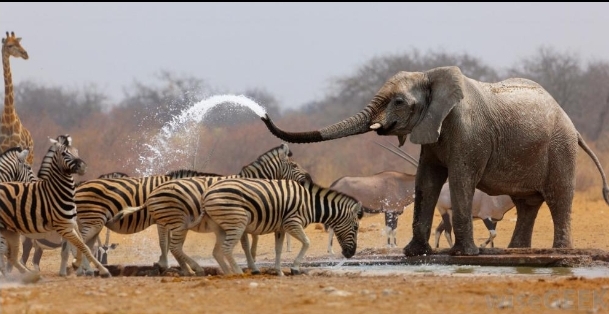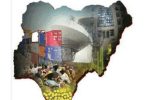In March 2024, a bill in support of Nigeria’s wildlife and biodiversity was moved for adoption at the Federal House of Representatives. Prepared by Nigeria’s Federal Ministry of the Environment, it was sponsored by Terseer Ugbor (the Deputy Chairman of the House Committee on Environment). Namely the Endangered Species Conservation and Protection Bill, it was an update to the existing wildlife conservation laws in the country. Speaking in support of the proposed bill, Ugbor stated that:
“It reflects our commitment to a sustainable future, where humans and wildlife coexist harmoniously. Let us pass this legislation for the sake of our planet, for the generations to come, and for the preservation of Nigeria’s natural heritage.”
Additionally, the bill is expected to bring Nigeria into compliance with international wildlife conservation agreements and standards.
The proposed bill is a culmination of cooperative efforts to protect Nigeria’s biodiversity. Over the years, key international wildlife conservation organizations (stated below) have canvassed for positive action to stop the threat to endangered species in Nigeria. They include:
- Environmental Investigation Agency
- Africa Nature Investors Foundation
- United Nations Office on Drugs and Crime
- Wild Africa Fund
- UK Illegal Wildlife Trade Challenge Fund and
- US Bureau of International Narcotics and Law Enforcement Affairs
Provisions in the Proposed Endangered Species Conservation and Protection Bill
Enforcing such a bill became pertinent, following a recent report prepared by the United Nations Office on Drugs and Crime (UNODC). Tagged Organized Crime in Nigeria: A Threat Assessment, the UNODC identified Nigeria as a
‘… country of origin or transit for the trafficking of several wildlife specimens, such as pangolin scales, elephant ivory and rosewood’.
Furthermore, the report indicated that Nigeria has experienced a significant increase in the illegal wildlife trade over the past one decade.
The bill proposed a number of recommendations aimed at strongly inhibiting illegal wildlife trade and poaching activities in the country. In particular, the bill sought to:
- Increase investigative powers to include making financial enquiries, and carrying out intelligence-led operations;
- Empower the law courts to execute wildlife cases and recover assets;
- Give additional powers to law enforcement agencies in such cases;
- Enforce stringent penalties on poachers and wildlife traffickers;
- Support international wildlife conservation initiatives; and
- Create corporate liability
Facts About Nigeria’s Wildlife and Biodiversity
The need to protect Nigeria’s wildlife, and stop the extermination of the country’s endangered species cannot be overemphasized. The huge diversity of flora and fauna across the globe contribute to maintaining the delicate balance of Nature that sustains life on the planet. To tamper with the planet’s ecological stability will cause harm to the entire planet, including humanity.
The continuous supply of oxygen, clean water, arable lands, control of animal populations (amongst other critical Nature supplies) depend on this ecological stability. The survival of all living things depends largely on this ecological stability. And all elements of Nature interconnect and cooperate to maintain this delicate balance. Humanity both interferes with, and is largely responsible for restoring, this natural balance.
To begin with, we must understand the following facts about Nigeria:
- Nigeria is one of the most biodiverse African countries
- The country has an amazing collection of ecosystems. They include dry desert fringes, savannahs, montane forests, plateaux, mangrove swamps, rainforests, and finally coastal regions.
- The country has a huge variety of wildlife species. These include endemic plant and animal species that do not exist anywhere else worldwide.
- The Niger Delta is known to be the largest wetland zone in Africa. Additionally, it has its own distinct collection of wildlife species.
Preserving Nigeria’s Wildlife: The Challenges
There are certain wild animals and plants currently facing the threat of extinction, largely due to unethical human practices. Their numbers have been drastically reduced; and unless deliberate efforts are made at preserving them, they would be entirely wiped out. These are the endangered species. Indeed the scientific community have identified several plant and animal species that have been wiped out over the ages. This oan occur as a result of both natural and man-made factors.
Typical examples of endangered species in Nigeria include:
- porcupines,
- rhinos,
- Nigerian giraffes,
- elephants,
- Nigerian Dwarf Forest Buffaloes,
- Nigerian-Camerounian Chimpanzees,
- Cross River gorilla,
- Nigerian-Camerounian clawless otters,
- Sea turtles,
amongst others. Well-known factors responsible for the endangerment of these wildlife species include the following:
- Excessive and illegal poaching. Several unauthorized persons hunt these animals for their meat, hairs, hide, bones, and feathers. This criminal and uncontrolled poaching has seriously depleted specific animal populations over the decades. It has badly interfered with their natural reproductive cycles as well. Because many animals are killed off before they have the chance to give birth to more offspring.
- Illegal trafficking and trade of wildlife. Besides killing animals to get products from them, they are also moved and sold into other countries. These acts have not abated, in spite of several cases of seizure of trafficked animals by Nigerian Customs officers.
- Loss of their habitats. Vast portions of natural habitats in Nigeria have been lost or destroyed. Common causes of habitat loss include deforestation (for the sake of agricultural and real estate projects), urbanization, and excessive logging.
- Climate change due to pollution (from multiple sources) and forest fires. The increase in global temperatures, and changing patterns in weather/climate, have seriously tampered with the health of many animals (and plants). Climate change has also interfered with natural cycles (in animals, plants, and Nature) and reproductive abilities. There is also the progressive reduction in food and water supply due to climate change.
- The problem of invasive species. Invasive species are plants and/or animals that originated from other habitats, but now encroach on indigenous species. They usually compete with native species for food and other supplies, and may outperform them. Thus these endangered species become much reduced in population.
A significant portion of these causal factors are man-made and as such, we must directly address them.
Recommendations to Promote the Preservation of Nigeria’s Wildlife
The following proactive measures are recommended to help in preserving these endangered species:
- The enforcement of wildlife protection laws. Strict penalties must be meted out on any defaulter attempting to tamper with any of these animals and/or plants and their preserved habitats.
- Creating and protecting nature reserves and wildlife parks.
- The restoration of natural habitats that may have been encroached on, or damaged.
- Creating public awareness about the need to preserve wildlife and natural ecosystems.
- The monitoring of endangered species to plan for their systemic management.
- Carrying out scientific studies to obtain useful data. This will help ongoing policy creation, strategies, and decision-making efforts to preserve wildlife.
- Embarking on collaborative efforts between the government, local communities, the scientific community, and policy makers to promote wildlife conservation.
Some of the key organizations (both government and non-governmental) involved in Nigeria’s wildlife conservation activities include:
- Wildlife Conservation Society
- National Parks Service
- Nigerian Conservation Foundation
- Environmental Conservation in Nigeria
- Nigerian Wildlife Conservation Society








